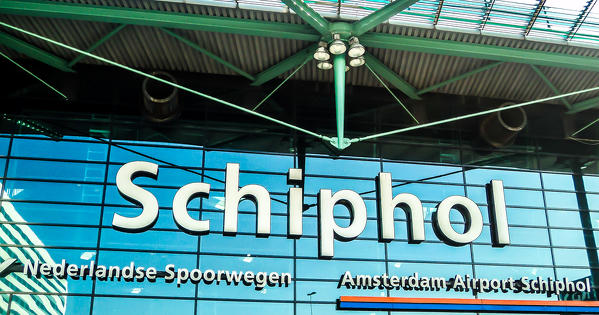Dick Penchope is leaving his post. The chief executive of Amsterdam Airport has submitted his resignation after Schiphol, who manages it, was unable to handle the increase in passenger traffic in the summer. Even before the peak traffic in July and August, it was clear that the airport was unable to handle the explosively increased traffic. According to statistics for the first half of the year, passenger traffic at Amsterdam Airport exceeded the value measured in the same period of 2021 by 324 percent. This was already unmanageable for them despite the fact that the number of passengers “only” rose to 23.8 million – the same number was 34.5 million in the last year before COVID, that is, in 2019. One of the world’s busiest airports identified a chronic labor shortage as The main cause of the problems – there were no loading staff and no security checks staff, not enough of them. As a result, flight delays and cancellations are common.
 Photo: Depositphotos
Photo: Depositphotos
Amsterdam is not the leader
Dire conditions in the Netherlands can be observed at almost every major airport. Pearson in Toronto holds the “global delay” title, with 52.9 percent of flights delayed between June 1 and July 12, but major European airports also set records: 46.4 for Frankfurt and 42 for Charles de Gaulle in Paris. .8, and in Hearthrow this value was 40.2 percent. So it is no coincidence that the traffic-heavy airports had to limit the number of flights and passengers. Schiphol, for example, announced restrictions until the end of September – the airport’s traffic stabilized at 440,000 takeoffs and landings annually. (This was previously 540,000 per year, so the reduction was about 20 percent…)
In addition, Amsterdam Airport decided to take an unprecedented step in the summer that others did not: it promised to compensate those travelers who incur additional costs due to flight delays – including transportation and accommodation expenses. The airlines also followed airport restrictions. For example, KLM reduced its schedule from 10 to 20 flights per day during peak summer traffic, and British Airways reduced its summer schedule to October by 10,300 flights. But Lufthansa and Easyjet also had to take the same step. The question is what kind of restrictions are placed on air carriers and airports in the winter schedule, which means much less traffic, as business tensions don’t seem to ease…






